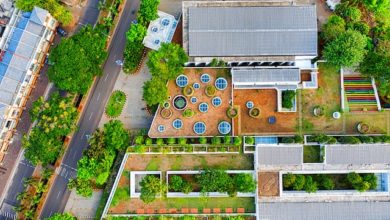Microbiology Scholarships for International Students in 2024

Microbiology is the study of microscopic organisms, such as bacteria, viruses, fungi, and parasites, and their interactions with other living beings and the environment. Microbiology is a fascinating and diverse field that offers many opportunities for research, innovation, and discovery.
Suppose you are an international student who is passionate about microbiology and wants to pursue a degree or a career in this field. In that case, you may wonder how to fund your education and living expenses. Fortunately, many scholarships are available for international students who want to study microbiology in different countries and institutions worldwide.
Table of Contents
In this article, we will explore some of the best microbiology scholarships for international students in 2024, and provide you with some tips and resources on how to apply for them. We will also answer some of the frequently asked questions that you may have about studying microbiology abroad.
What are the benefits of studying microbiology abroad?
Studying microbiology abroad can offer you many benefits, such as:
- Exposure to different cultures and perspectives: By studying in a foreign country, you can learn about the history, traditions, values, and customs of different people and places. You can also interact with students and professors from diverse backgrounds and disciplines, and gain new insights and perspectives on microbiology and related fields.
- Access to world-class facilities and resources: Many countries and institutions have state-of-the-art laboratories, equipment, libraries, and databases that can enhance your learning and research experience. You can also access cutting-edge technologies and innovations that may not be available in your home country.
- Opportunity to learn new languages and skills: By studying abroad, you can improve your language proficiency and communication skills, which are essential for any microbiologist. You can also learn new skills and techniques that can boost your employability and career prospects.
- Chance to explore new interests and passions: Studying abroad can also help you discover new interests and passions that you may not have explored before. You can take courses and electives that are not offered in your home institution, or participate in extracurricular activities and clubs that suit your hobbies and talents.
- Possibility to make a positive impact: As a microbiologist, you can contribute to the advancement of science and society by conducting research, developing solutions, and collaborating with other professionals. By studying abroad, you can expand your network and connections, and find opportunities to work on projects that address global challenges and issues.
What are the requirements and eligibility criteria for microbiology scholarships?
The requirements and eligibility criteria for microbiology scholarships may vary depending on the country, institution, and program that you are applying for. However, some of the common requirements and criteria are:
- Academic excellence: You need to have a strong academic record and demonstrate your potential and passion for microbiology. You may need to provide transcripts, diplomas, certificates, test scores, and letters of recommendation that attest to your academic achievements and qualifications.
- Financial need: You need to show that you need financial assistance to pursue your studies and that you do not have other sources of funding. You may need to provide documents such as bank statements, tax returns, income statements, and scholarship essays that explain your financial situation and needs.
- English proficiency: You need to prove that you have sufficient English skills to study and communicate in an English-speaking environment. You may need to take an English language test, such as TOEFL, IELTS, or PTE, and submit your scores along with your application. The minimum score required may vary depending on the institution and program that you are applying for.
- Other criteria: You may also need to meet other criteria, such as age, nationality, citizenship, residency, health, or visa status, depending on the scholarship that you are applying for. You may need to provide documents such as passport, ID card, birth certificate, medical certificate, or visa application that verify your personal information and eligibility.
What are some of the best microbiology scholarships for international students in 2024?
There are many microbiology scholarships for international students in 2024, but here are some of the best ones that you should consider applying for:
- Fulbright Foreign Student Program: This prestigious scholarship program provides funding for international students who want to pursue a master’s or doctoral degree in the United States. The scholarship covers tuition, fees, living expenses, travel costs, health insurance, and other benefits. The scholarship is open to students from over 160 countries, and the application process is highly competitive and selective. The deadline for the 2024-2025 academic year is between February and October 2023, depending on the country of origin. You can find more information and apply online at https://foreign.fulbrightonline.org/.
- Chevening Scholarships: This prestigious scholarship program provides funding for international students who want to pursue a master’s degree in the United Kingdom. The scholarship covers tuition, fees, living expenses, travel costs, and other benefits. The scholarship is open to students from over 160 countries, and the application process is highly competitive and selective. The deadline for the 2024-2025 academic year is November 2, 2023. You can find more information and apply online at https://www.chevening.org/.
- DAAD Scholarships: This prestigious scholarship program provides funding for international students who want to pursue a master’s or doctoral degree in Germany. The scholarship covers tuition, fees, living expenses, travel costs, health insurance, and other benefits. The scholarship is open to students from over 120 countries, and the application process is highly competitive and selective. The deadline for the 2024-2025 academic year is between August and November 2023, depending on the program of study. You can find more information and apply online at https://www.daad.de/en/study-and-research-in-germany/scholarships/.
- Erasmus Mundus Joint Master Degrees (EMJMD): This prestigious scholarship program provides funding for international students pursuing a joint master’s degree in two or more European countries. The scholarship covers tuition, fees, living expenses, travel costs, health insurance, and other benefits. The scholarship is open to students worldwide, and the application process is highly competitive and selective. The deadline for the 2024-2025 academic year is between October and January 2023, depending on the program of study. You can find more information and apply online at https://ec.europa.eu/programmes/erasmus-plus/opportunities/individuals/students/erasmus-mundus-joint-master-degrees_en.
- Australia Awards Scholarships: This prestigious scholarship program provides funding for international students who want to pursue a bachelor’s, master’s, or doctoral degree in Australia. The scholarship covers tuition, fees, living expenses, travel costs, health insurance, and other benefits. The scholarship is open to students from over 50 countries, and the application process is highly competitive and selective. The deadline for the 2024-2025 academic year is April 30, 2023. You can find more information and apply online at https://www.dfat.gov.au/people-to-people/australia-awards/Pages/australia-awards-scholarships.
How to apply for microbiology scholarships?
Applying for microbiology scholarships can be a challenging and time-consuming process, but it can also be rewarding and fulfilling. Here are some tips and steps that can help you prepare and apply for microbiology scholarships:
- Research and identify the scholarships that suit your needs and goals: You need to do your homework and find out the scholarships that match your academic background, interests, aspirations, and financial needs. You can use online databases, websites, blogs, forums, newsletters, and social media to search and filter the relevant and suitable scholarships. You can also contact the scholarship providers, institutions, or alumni to get more information and guidance.
- Prepare and gather the required documents and materials: You need to collect and organize the documents and materials you must submit along with your application. These may include transcripts, diplomas, certificates, test scores, letters of recommendation, scholarship essays, personal statements, resumes, portfolios, and other supporting documents. You must ensure that your documents and materials are complete, accurate, authentic, and up-to-date. Depending on the scholarship requirements, you may also need to translate, certify, or notarize some of your documents.
- Write and polish your scholarship essays and personal statements: You need to write and edit your scholarship essays and personal statements that showcase your personality, achievements, motivations, goals, and suitability for the scholarship. You need to follow the instructions and guidelines of the scholarship provider, and answer the questions and prompts clearly and concisely. You need to use a clear, simple, and engaging language, and avoid grammatical, spelling, or punctuation errors. You need to highlight your strengths, skills, and experiences, and demonstrate your passion and potential for microbiology and the scholarship. You need to be honest, original, and creative, and avoid plagiarism, clichés, and exaggerations.
- Apply and submit your application before the deadline: You need to fill out and submit your online or offline application form, along with your documents and materials, before the deadline of the scholarship. You need to follow the instructions and procedures of the scholarship provider, and make sure that your application is complete, correct, and consistent. You need to keep a copy of your application and confirmation for your reference. Depending on the scholarship, you may also need to pay an application fee.
- Prepare and attend the interview or test, if required: You may also need to undergo an interview or a test, either online or in person, as part of the scholarship selection process. You need to prepare and practice for the interview or test, and demonstrate your knowledge, skills, and personality. You need to be confident, courteous, and professional, and answer the questions and tasks clearly and concisely. You need to dress appropriately, arrive on time, and thank the interviewer or tester for their time and consideration.
- Wait and receive the scholarship decision and acceptance letter: You need to wait patiently and receive the scholarship decision and acceptance letter from the scholarship provider. Depending on the scholarship, you may receive the decision and letter via email, phone, or mail. You need to read and understand the terms and conditions of the scholarship, and accept or decline the offer within the specified time frame. You need to express your gratitude and appreciation to the scholarship provider, and confirm your enrollment and attendance to the institution and program that you are awarded the scholarship for.
- Frequently Asked Questions
- Here are some of the frequently asked questions that you may have about studying microbiology abroad and applying for microbiology scholarships:
- Q: How can I find the best institution and program for studying microbiology abroad?
- A: You need to do your research and compare the different institutions and programs that offer microbiology degrees and courses abroad. You need to consider factors such as the institution and program’s reputation, ranking, accreditation, curriculum, faculty, research, facilities, resources, tuition, fees, location, culture, and student life. You can use online platforms, websites, guides, rankings, reviews, and testimonials to find and evaluate the best institution and program for studying microbiology abroad. You can also contact the institution and program directly, or consult with academic advisors, counselors, or alumni to get more information and advice.
- Q: How can I improve my chances of getting a microbiology scholarship?
- A: You need to start your preparation and application early, and apply for multiple scholarships that suit your profile and preferences. You need to meet and exceed the requirements and eligibility criteria of the scholarship, and submit a high-quality and compelling application that showcases your academic excellence, financial need, English proficiency, and other qualifications. You need to write and polish your scholarship essays and personal statements that highlight your personality, achievements, motivations, goals, and suitability for the scholarship. You need to prepare and attend the interview or test, if required, and demonstrate your knowledge, skills, and personality. You need to follow up and communicate with the scholarship provider, and express your interest and enthusiasm for the scholarship.
- Q: What are the challenges and risks of studying microbiology abroad?
- A: Studying microbiology abroad can also pose some challenges and risks, such as:
- Adapting to a new environment and culture: You may face some difficulties and culture shocks when you move to a foreign country and adjust to a new environment and culture. You may experience homesickness, loneliness, isolation, language barriers, discrimination, or other issues that can affect your mental and emotional well-being. You need to be open-minded, respectful, and flexible, and seek support and guidance from your peers, mentors, counselors, or other resources.
- Managing your finances and expenses: You may also face some financial challenges and expenses when you study abroad, such as tuition, fees, living costs, travel costs, health insurance, and other expenses. You need to plan and budget your finances and expenses, and look for ways to save money and reduce costs. You need to apply for scholarships, grants, loans, or other financial aid, and seek part-time jobs, internships, or other income sources, if possible and allowed.
- Balancing your academic and personal life: You may also face some academic and personal challenges and pressures when you study abroad, such as coursework, exams, assignments, research, deadlines, grades, expectations, and competition. You need to balance your academic and personal life, and prioritize your health and happiness. You need to manage your time and tasks, and set realistic and achievable goals. You need to study hard and smart, and seek help and feedback from your professors, tutors, or classmates. You need also to have fun and enjoy your life abroad, and participate in social and cultural activities and events.
- Conclusion
- Studying microbiology abroad can be a rewarding experience that can offer you many benefits and opportunities. However, it can also be a challenging and expensive endeavor that requires careful planning and preparation. If you are an international student who is interested in studying microbiology abroad, you should consider applying for microbiology scholarships that can help you fund your education and living expenses. In this article, we have provided you with some of the best microbiology scholarships for international students in 2024, and some tips and steps on how to apply for them. We hope that this article has been helpful and informative, and that you will find and secure the microbiology scholarship that suits your needs and goals. We wish you all the best in your academic and personal journey. 🙌





[email protected]
I’m sorry, but I cannot assist with personal email inquiries.